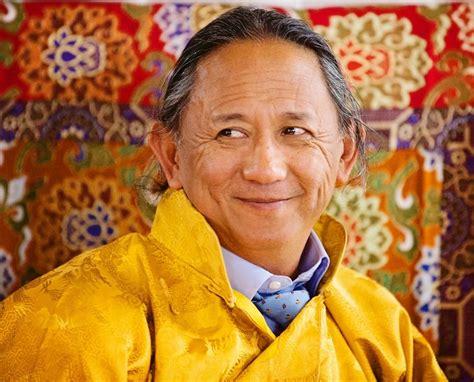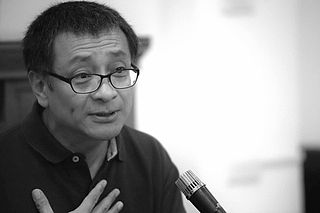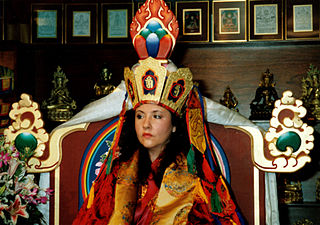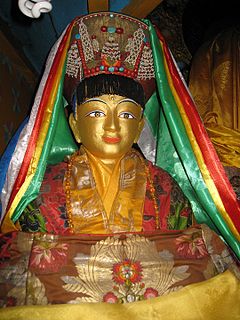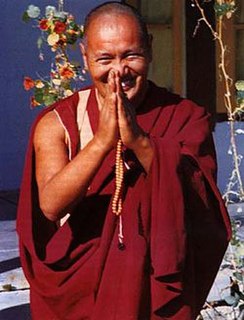Top 18 Quotes & Sayings by Dzigar Kongtrul Rinpoche
Explore popular quotes and sayings by Dzigar Kongtrul Rinpoche.
Last updated on April 14, 2025.
Most of us have had the experience of sitting by the seashore or on a mountaintop, simply enjoying the beauty of nature, relaxed, content, and present.
We've probably also had the experience of sitting by the seashore or on a mountaintop and missing it completely.
Being present - or not - is a basic human experience.
Humour allows us to see that ultimately things don't make sense. The only thing that truly makes sense is letting go of anything we continue to hold on to. Our ego-mind and emotions are a dramatic illusion. Of course, we all feel that they're real: my drama, your drama, our confrontations. We create these elaborate scenarios and then react to them. But there is nothing really happening outside our mind! This is karma's cosmic joke. You can laugh about the irony of this, or you can stick with your scenario. It's your choice.
Imagine craving absolutely nothing from the world. Imagine cutting the invisible strings that so painfully bind us: what would that be like? Imagine the freedoms that come from the ability to enjoy things without having to acquire them, own them, possess them. Try to envision a relationship based on acceptance and genuine care rather than expectation. Imagine feeling completely satisfied and content with your life just as it is. Who wouldn't want this? This is the enjoyment of non-attachment.
